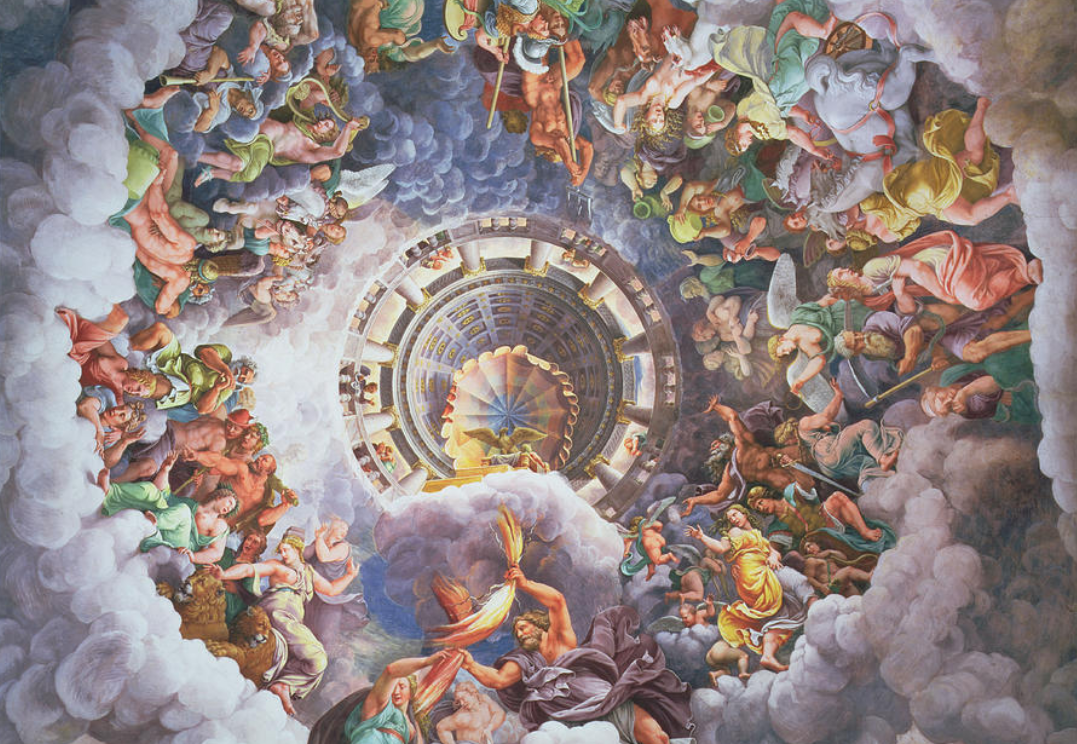
“Mythology is not a lie, mythology is poetry, it is metaphorical. It has been well said that mythology is the penultimate truth–penultimate because the ultimate cannot be put into words. It is beyond words. Beyond images, beyond that bounding rim of the Buddhist Wheel of Becoming. Mythology pitches the mind beyond that rim, to what can be known but not told.” ( Joseph Campbell, The Power of Myth)
December 7th is launch day for Chariot of the Son, the first book in the new Mythologia series.
Today, I wanted to talk a bit about the importance of myths and of retelling them.
Why is it that myths and legends have stood the test of time? Why are they still as popular today as they ever were?
Those are some wide open questions that I won’t fully answer here, for that kind of discussion, you should read Joseph Campbell’s seminal work, The Hero with a Thousand Faces, as well as the transcript of the discussion between Bill Moyers and Joseph Campbell called The Power of Myth.
“Dream is the personalized myth, myth the depersonalized dream; both myth and dream are symbolic in the same general way of the dynamic of the psyche. But in the dream the forms are quirked by the peculiar troubles of the dreamer, whereas in myth the problems and solutions sown are directly valid for all mankind” (Joseph Campbell, The Hero With a Thousand Faces)
Myth and legend speak to us on a level that is both spiritual and psychological. Humans have always been drawn to tales about gods and heroes, of great deeds done under extreme circumstances.
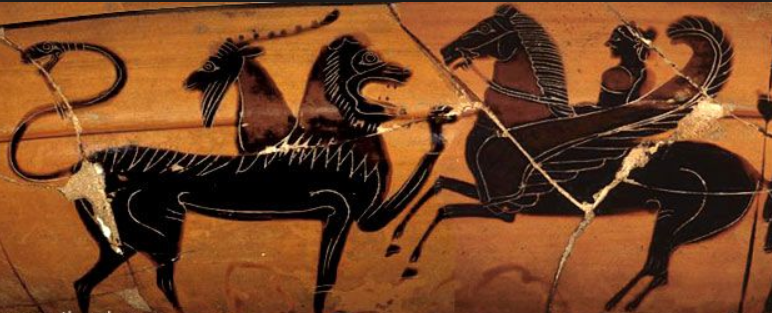
Bellerophon and Pegasus battle the Chimera
And as Campbell posits, the archetypes of the hero and the journey he takes are things that cross cultures and eras in human history. No matter the age in which we live upon this earth, we are drawn to elements of the tales that make up our myths and legends. We never tire of them.
Our ancient myths and legends are still going strong, not only because we connect with them in such a deep way, but also because we tell and retell these stories over and over again for successive generations.
When I was little, I loved the story of Perseus and Medusa, and I’m sure that young Greek warriors or Roman lads enjoyed those stories too.

Harry Hamlin as Perseus in Clash of the Titans
The myths inspire us to be greater, to exceed ourselves, to press on through hardship. We gain strength through hearing them and experiencing them.
You may not enjoy some retellings of myths and legends such as Hercules, Clash of the Titans, or the Percy Jackson novels, but they are important in that they keep these tales alive, they continue to inspire. For the record, I enjoyed all of those I just mentioned!
A young Henry VIII may have enjoyed tales of King Arthur and the Knights of the Round Table, flipping through his copy of Caxton’s printing of Sir Thomas Malory’s Le Morte D’Arthur, as much as a youth would today reading a more recent iteration by Howard Pyle. I know I did, and still do.
Myths and legends throughout our history have also served as ‘teaching tales’ for humanity. We learn, and are reminded of, courage and compassion, humility and goodness, fear and heroism, life and death, and everything in between. Myths and legends show us the good, the bad, the ugly, and the truly divine of mortals and immortals.
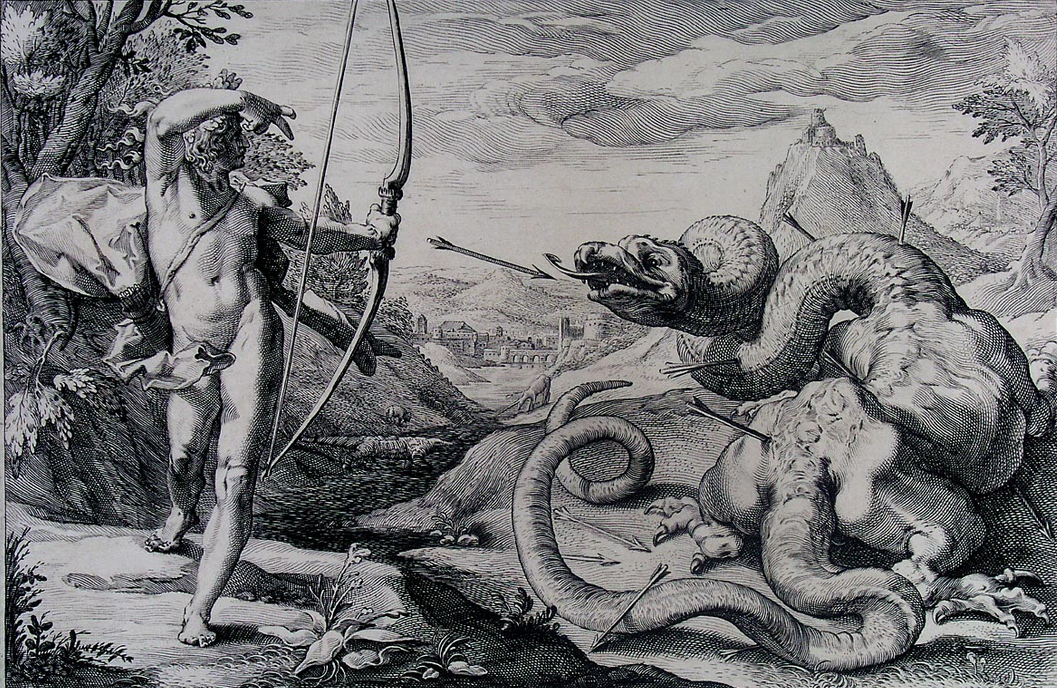
Apollo slays the Python on Mt. Parnassus
These tales brought us closer to our gods and heroes, and as a result help us to come closer to who we are, or have the potential to be.
“The agony of breaking through personal limitations is the agony of spiritual growth. Art, literature, myth and cult, philosophy, and ascetic disciplines are instruments to help the individual past his limiting horizons into spheres of ever-expanding realization. As he crosses threshold after threshold, conquering dragon after dragon, the stature of the divinity that he summons to his highest wish increases, until it subsumes the cosmos. Finally, the mind breaks the bounding sphere of the cosmos to a realization transcending all experiences of form – all symbolizations, all divinities: a realization of the ineluctable void.” (Joseph Campbell, The Hero With a Thousand Faces)
In deciding to retell various myths and legends as part of the Mythologia series, I am on a quest to write new and entertaining versions of these tales. But I also want to get up close and personal with the gods, goddesses, and heroes who have haunted the realms of my imagination since I first became aware of them.
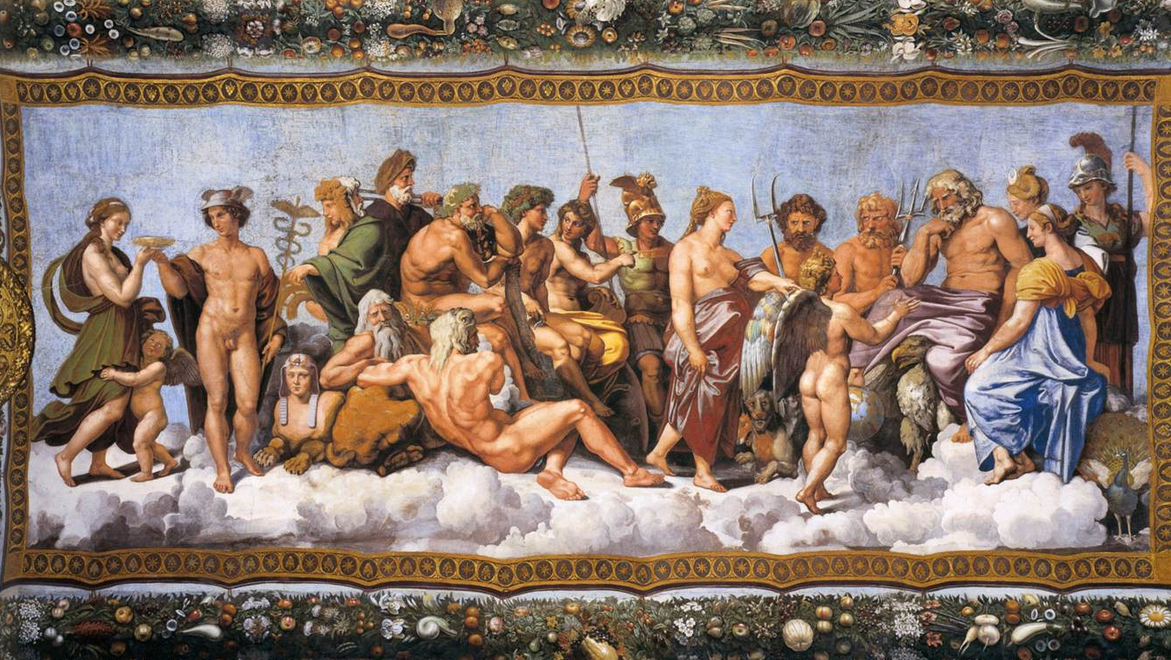
I’m not sure which myth I will explore next, but whichever one it is, I can’t wait to unleash my imagination in the same way as I did with the first one in the Mythologia series.
Chariot of the Son is out this December 7th, 2014, and will be available for just $0.99 cents until the Winter Solstice. So be sure to grab a copy! You can read a lengthy excerpt by clicking HERE.
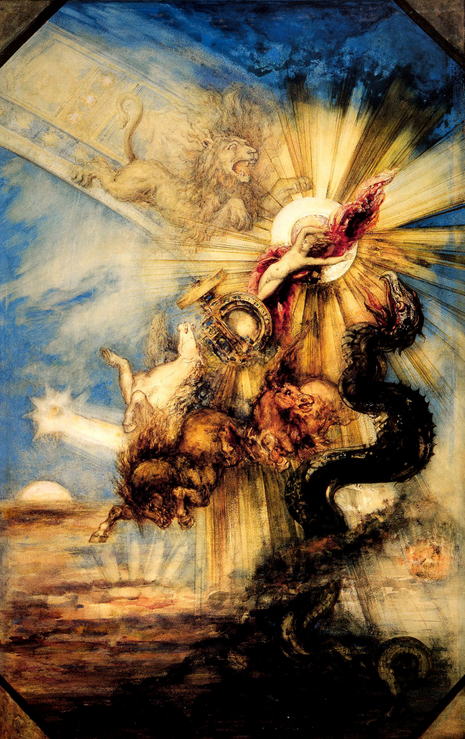
Phaethon
Also, I’ve been interviewed on the website of a fellow author, Effrosyni Moschoudi, whose book, The Necklace of the Goddess Athena, has been rocking the Amazon charts. If you missed it, be sure to check out Effrosyni’s brilliant guest post from last week on the Goddess Athena and the Parthenon.
I guess I’ll see you the other side of launch day. I do hope you enjoy my retelling of the Phaethon myth in Chariot of the Son.
For now, I think it nice to leave you with some more words by Joseph Campbell:
“People say that what we’re all seeking is a meaning for life. I don’t think that’s what we’re really seeking. I think that what we’re seeking is an experience of being alive, so that our life experiences on the purely physical plane will have resonances with our own innermost being and reality, so that we actually feel the rapture of being alive.” (Joseph Campbell, The Power of Myth)
Thank you for reading.
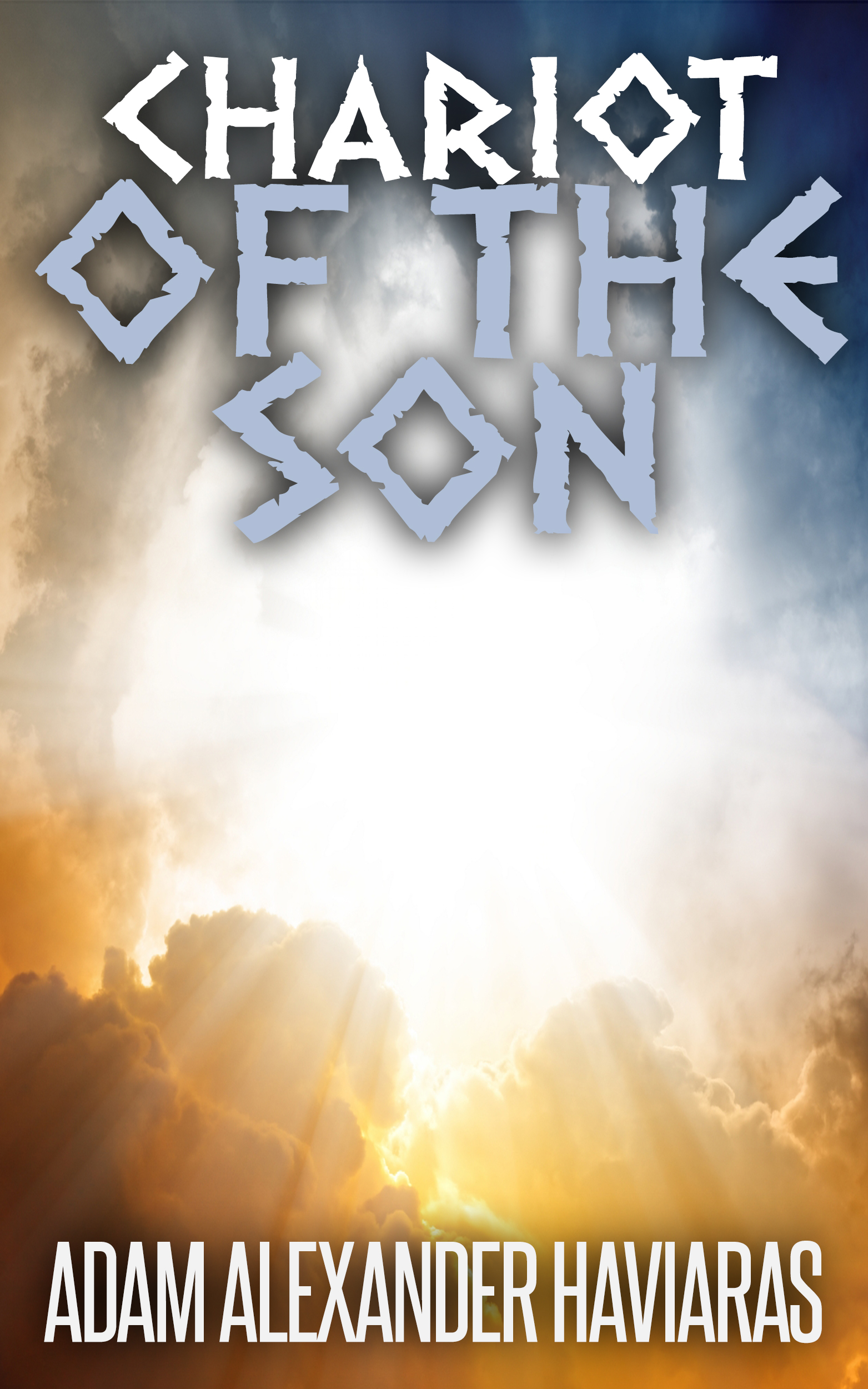




Hi Adam
Your article brought nods and smiles as I was reading. Your words and explanation of mythology resonated strongly. I could hear the echo of my thoughts as I digested your post.
The mystique of myth is fascinating and the lessons we gain from them are still important today.
Wonderful post Adam, thank you!
cheers
Luciana 😀
I’m glad you liked it, Luciana, especially as you are something of an expert on mythology 🙂 I think everyone should read the myths!
Myths are forever and they teach us many lessons we ought to follow for a successful, meaningful living. The way they are being retold across the world in different contexts tells us that we are the characters– their strengths, weaknesses, emotions, temptations, fall and rise– we see even now in our lives as well as the lives of our fellow beings. Hence, they may be read to ward off dangers and disasters to a certain extent.
Certainly! We have so much to learn from the myths. Thank you for your thoughtful comment 🙂